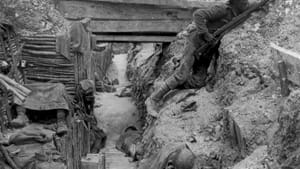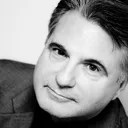Stay in the Loop
BSR publishes on a weekly schedule, with an email newsletter every Wednesday and Thursday morning. There’s no paywall, and subscribing is always free.
The war to end all wars
Ten great books about World War I

This summer marks the 100th anniversary of the outbreak of World War I.
Everything that has happened on the world stage over the past century has been due to this seismic war. Everything vital to an understanding of the 20th century, from the emergence of the United States as the world superpower to the transformation of Russia into the Soviet Union, had its roots in World War I.
Aside from its historical importance, World War I is an incredible story, full of improbable events, unspeakable tragedies, incredible heroics, and a cast of characters that even Stephen King would have trouble imagining.
The spark occurs on June 28, 1914 when the heir of a dying empire, Archduke Franz Ferdinand of Austria, and his morganatic wife (she was a commoner, so none of their children could ever take the throne) survived the bombing of their automobile, only to be assassinated later that same day by a bumbling terrorist who happened to be in the same street, at the same time, as the royal auto because the Archduke’s chauffeur made a wrong turn into a dead-end street. If it all didn’t turn out to be so tragic, it would be funny.
Four years later, the slaughter ended, and the writing began. There have been more books about World War I than any other world conflict — and some mighty fine books, too. Here is my list of ten favorites that should whet your appetite.
The Guns of August by Barbara W. Tuchman is the best-selling, Pulitzer Prize-winning history of the beginning of the Great War, as it was known until history repeated itself, and it became merely I of II. Tuchman tells the fantastic tale of how millions of men were sent to their deaths, cities were destroyed, and empires fell all because of a railroad timetable. An engaging read that will reignite your love of history and make you forget those boring afternoons with Professor Droneon.
All Quiet on the Western Front by Erich Maria Remarque is the novel that made pacifists of millions of Europeans just when they could least afford to lose their fighting spirit: it was published in 1929, just four years before the Nazis came to power. A great book about a young man’s journey into the dark world of trench warfare.
The First World War by John Keegan. If you love to read about battles and brigades and flanks, then this is the book for you. Keegan is a modern master of military history, and this is one of his finest books.
The Long Fuse by Laurence Lafore. How WWI began is easily answered — somebody shot somebody and soon the threats and ultimatums went flying, and the dominoes seemed to fall of their own volition. But why WWI began is a much more complicated question. Here, Lafore traces the origins of WWI and, as the title suggests, takes us back to the beginnings of the events in which the balance of power in Europe got out of whack.
Good-Bye to All That by Robert Graves. This autobiography of one man’s simple life blown apart by WWI is written by the poet who brought to life the world of the early Roman emperors in I, Claudius. Graves takes us back to a world before the Great War that is now as distant as Claudius’s world.
The Price of Glory: Verdun 1916 by Sir Alistair Horne. In less than a year, on a front that was never more than 15 miles wide, 700,000 men fell at Verdun. This battle more than any other encompasses the insanity that was WWI. Horne brings it all to life in such detail that you will never forget how easy it was for seemingly sane men to continue doing the same thing over and over again yet expecting different results.
A Farewell to Arms is the novel that put Ernest Hemingway in the big leagues. An international best seller, it tells the tale of a young American ambulance driver on the Italian front (Italy was an ally of France and Great Britain in WWI, and then switched sides in WWII) who falls in love with an English nurse. Romantic and realistic, it shows the Hemingway motif in its infancy.
Into the Silence: The Great War, Mallory, and the Conquest of Everest by Wade Davis explores a few men’s experience in WWI and how it shaped their lives and the lives of their countrymen. Davis’s narrative takes us into the depths of the trenches of Flanders and then up to the heights of the Himalayas. Into the Silence answers the question of why men try to climb to the top of Mt. Everest and links that answer to the fiery forge of WWI that shaped those men.
Gallipoli by Alan Moorehead. Turkey was an improbable ally of Germany in WWI. Churchill was Sea Lord for the British at the time and conceived an incredible plan to invade Turkey and smash through the Balkans into Russia, thus helping to supply Britain’s neediest ally. On paper, it looked great. In reality, it was a disaster that forced Churchill to resign.
Poetry of the First World War: An Anthology by Tim Kendall. O.K., so it’s unlikely that you have read much poetry since your college days, and you never even bother to glance at the poems in The New Yorker. Let me bet you that you will like the poems in this anthology — or at least some of them. The best are all here. Most of us know nothing of the War of the Roses except for the poetry that Shakespeare used to make it come alive for us, and it is the poetry of WWI that may outlast all the other books mentioned here.
Sign up for our newsletter
All of the week's new articles, all in one place. Sign up for the free weekly BSR newsletters, and don't miss a conversation.

 Armen Pandola
Armen Pandola